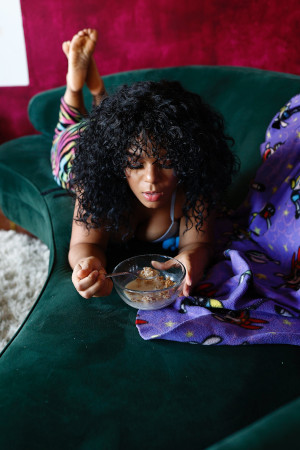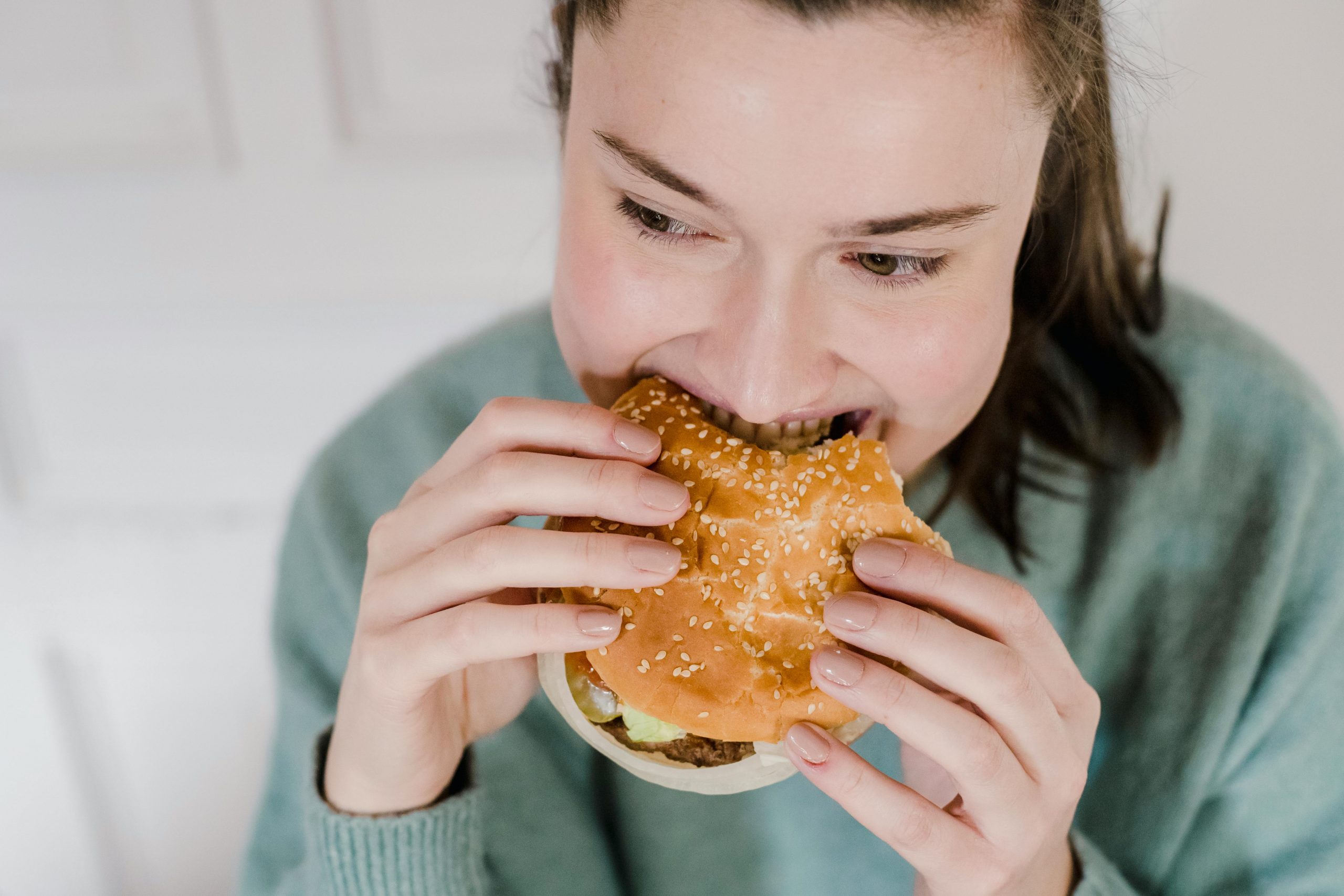If you do a Google search for “emotional eating,” nearly every search result includes words like “struggle,” “stop,” “conquer,” and “fight”—words of battle. But it’s important to realize that emotional eating is okay. It’s something that many people do, and being self critical about it is unhelpful and can even perpetuate a disordered eating cycle. So if you see emotional eating as a battle to win, consider how it might feel to soften that perspective into seeing it as a behavior to notice and accept. That shift in approach might improve your relationship with food—and yourself.
The key distinction to look at here is guilt versus shame. If you sit down and eat a whole bag of chips, or an entire pizza, you might feel some guilt: “I wish I hadn’t eaten the whole thing.” And that’s okay. Shame often has a similar expression of regret, but it also includes harsh judgment: “I wish I hadn’t eaten the whole thing. I’m a terrible person. I have no self control.”
Invite the kind observer into your internal dialog
For some, this inner critic voice is quite strong, and simply wishing it away is not easy. In that case, noticing when you feel internal criticism is a great first step. If you just ate emotionally and are now hearing from that familiar unkind voice (“Why did you eat all of that? You have no discipline; you are the worst!”), try to imagine if you heard a friend or beloved family member saying those words to themself. What would you say in response? Probably something like: “Hey, it’s okay. You were feeling really stressed after work, and eating helps you feel more calm.”
The kind observer can also simply acknowledge what is happening. “I ate more than I wanted to. Now my inner critic is here, and I’m feeling a lot of shame.”

The goal is not to silence the critical voice—that perpetuates the internal fight—but to make space for a new, more helpful voice to join in the conversation. A voice that brings self compassion and spaciousness. An advocate for inner peace.
Embrace the ethos of intuitive eating
Intuitive eating is a helpful approach to learn about if emotional eating is a concern for you. The goal of intuitive eating is to step away from ideas about eating—rules, calories, diet plans—and build trust in your feelings about eating. Eat when you’re hungry, stop when you’re full.
Start to check in more regularly with yourself, and give yourself permission to honor your feelings. Are you hungry for a snack? Have one. Did you just eat a large meal? How do you feel now? A little uncomfortably full? OK. Good to know.
Whatever is happening, try to be observant. If it helps, you can even think of yourself as a scientist, studying what “hunger” and “fullness” means. Scientists try to gather data points to better understand a phenomenon, without judgment. If you do notice the critic’s voice, that’s okay—don’t fight it—but maybe invite the kind observer in to notice that there is criticism happening, and acknowledge any feelings that may be coming up as a result, like shame or sadness.
For those with an eating disorder, intuitive eating can feel scary, as if you are making a conscious decision to exist solely in the “binge” part of your disordered eating cycle. But in order to get back in touch with our body’s ability to communicate when it is hungry or full, we need to step out of our head and into our body (metaphorically).
Having rigid rules about eating can feel controlled and orderly, whereas intuitive eating might have a feeling of spaciousness that can feel chaotic. It won’t feel that way forever. Trust the cues you receive from your body, and trust that healing from disordered eating is a process. Going through it with the guidance of a therapist or dietitian can be hugely helpful.
To move toward internal peace, it’s important to acknowledge where there is strife. By inviting a kind voice into your inner dialog, you are inviting the opportunity to make a positive change in what might be a destructive eating pattern. And exploring intuitive eating can put you back in touch with a wonderful human ability: trusting your gut—literally.
If you would like help improving your relationship with food or body image, get in touch today for a free 15-minute consultation. Evolve Wellness Group is a collective of therapists and dietitians who specialize in the treatment of eating disorders, and we can help.


